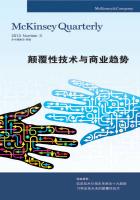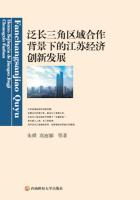In this and the following three chapters,I will turn to the first phase of Taiwan land reform.Beginning April 1949,a set of regulations on agricultural land lease was promulgated and enforced by the Taiwan National Government.Under this phase of the reform,the rental percentage was reduced from an estimated mean of 56.8 percent of the annual yield to 37.5 percent.[1] This was applied to all farm rentals(fixed and share rents alike)except horticulture.The magnitude of farming resources affected by this enactment is shown in table 4,chapter 8.The relevant legal provisions will be discussed in the proper context in this and the next chapter.
The difficulty of analysis seems to stem from the problems of(1)identifying various legal constraints,both those that are vaguely implied and those explicitly stated in law;(2)specifying the options of choice;and(3)ascertaining the effectiveness of various legal constraints.The same control device under different legal authorities,for example,may give rise to different outcomes simply because the interpretations of law differ,or the efforts of enforcement differ.The above conditions must be specified before one can analyze the observable consequences theoretically and empirically.This I shall try to do.
I begin the analysis by presuming that the rental percentage alone is legally and effectively reduced. Other restrictions will be considered later. It is useful to classify the predictable events as implied by economic theory into two main groups. The first group are offsetting contractual rearrangements, which include compensating payments and changes in tenure arrangements through the transfer of rights. The second are the resource reallocations. In this chapter I shall concentrate on the first.
A.The Hypothesis of Offsetting Contractual Rearrangements
An offsetting contractual rearrangement is defined as a contractual revision which, in the absence of transaction costs and risks, produces no effect on the initially contracted resource allocation and income distribution. A legal restriction on the rental percentage will induce a variety of contractual rearrangements between the contracting parties to restore the equilibrium that had been arrived at by the market terms of contract, unless these rearrangements are prohibited by law. These rearrangements may be regarded as transfer effects resulting from the rental share restriction.
Suppose an unrestrained market rental percentage of 70 percent of the annual yield is legally restricted to 40 percent. If no adjustment whatsoever is made, the result of this percentage reduction is a redistribution of income from the landowner to the tenant, an outcome which Taiwan reformers had intended. Without reallocating resources, what will the contracting parties do?
Compensating Payments
As a device to attentuate private land rights, the restriction on rental percentage alone affects little, if anything at all. With the ownership of land exclusively defined, there are several revisions in the form of payment that the landowner could use to protect his wealth position without violating the restriction. (1) The simplest of these is to charge lump-sum annual payments offsetting the reduction in rental percentage. This can be done in a variety of ways. One way is to charge a full lump-sum in the form of "key" money or in the name of a security deposit. If the duration of lease is contracted for several years, the landowner may require the tenant to pay a present lump-sum equal to the discounted value of the reduced annual rental income for the contracted years. (2) If, before the rental share restriction, part of the nonland farming cost had been borne by the landowner, he may simply require the tenant to pay the full cost. (3) It had been a practice in some share contracts that a landowner allowed the tenant to use part of the land to grow some "cereals" for the tenant's personal consumption, which were not required to be shared; instead, the owner would charge a higher rental percentage of the stipulated crops. Under the rental share restriction, the landowner may share in all crops alike. Depending on the magnitude of the percentage restriction and the original terms of the contract, it is clear that the last two methods combined may not be sufficient to restore the initial situation.
Tenure Rearrangements
Suppose compensating payments were also legally prohibited. The landowner could protect his wealth position by changing tenure arrangements through a transfer of property rights. This can also be done in a variety of ways. (1) He may simply repossess the tenant's holding and farm the land himself, or hire laborers to do the tilling. (2) Suppose the lease duration contracted is such that the landowner cannot cancel the lease for land repossession. He will be willing to offer a fee to the tenant to buy back the lease right. (3) Alternatively, the landowner may sell his holdings outright to his tenants, at a price per acre equal to the discounted present value of rent per acre before the share restriction. (4) If a tenant does not have sufficient funds to pay the land price immediately, an installment plan may be made whereby he pays the landowner no more than the rental annuity. The transfer of the ownership of land to the tenant, however, is a clear restoration of the initial wealth condition only if the price of land does not fall, that is, if there is no specialization in risk bearing or management, or if there is no decline in speculative demand to hold land as a result of the land reform.















